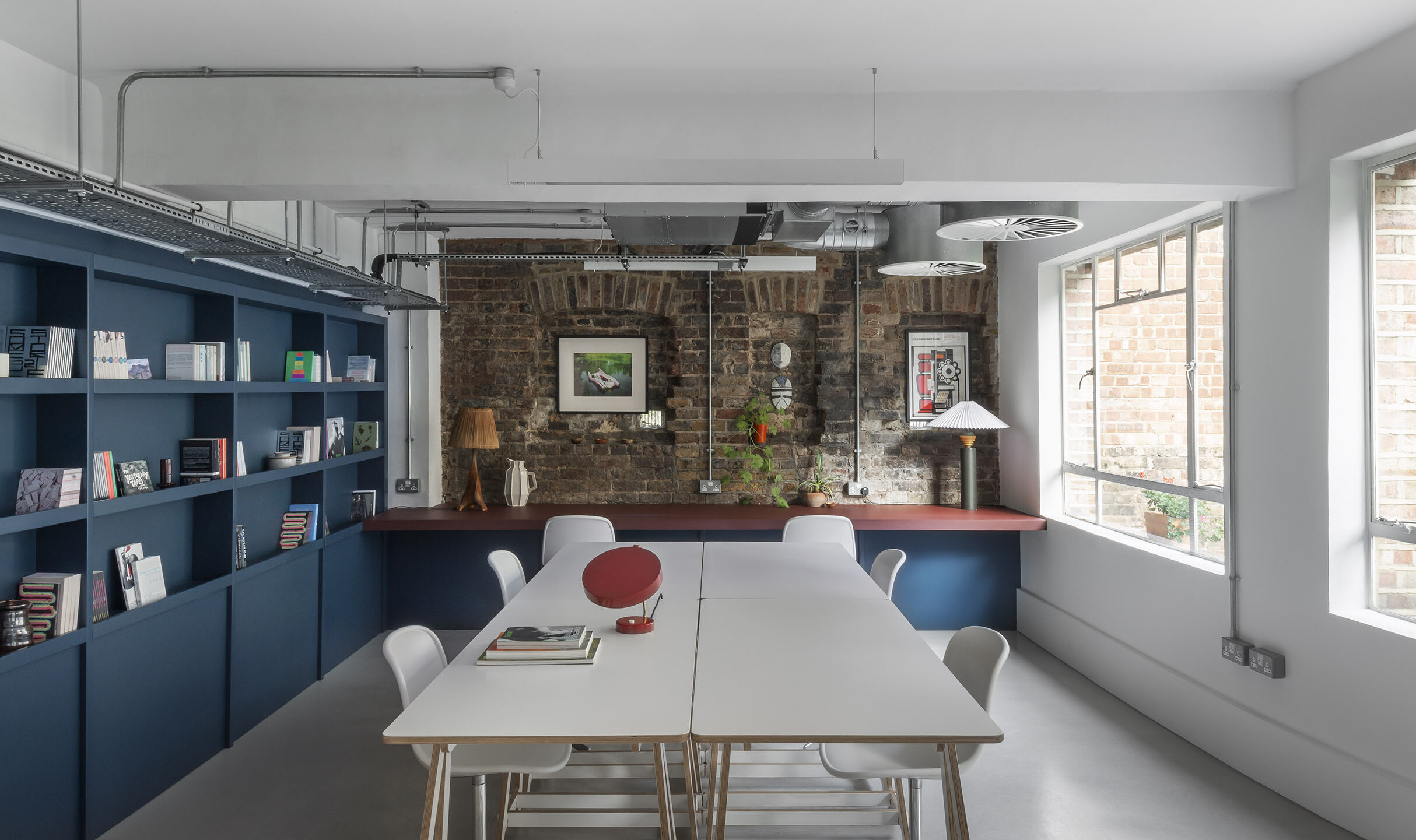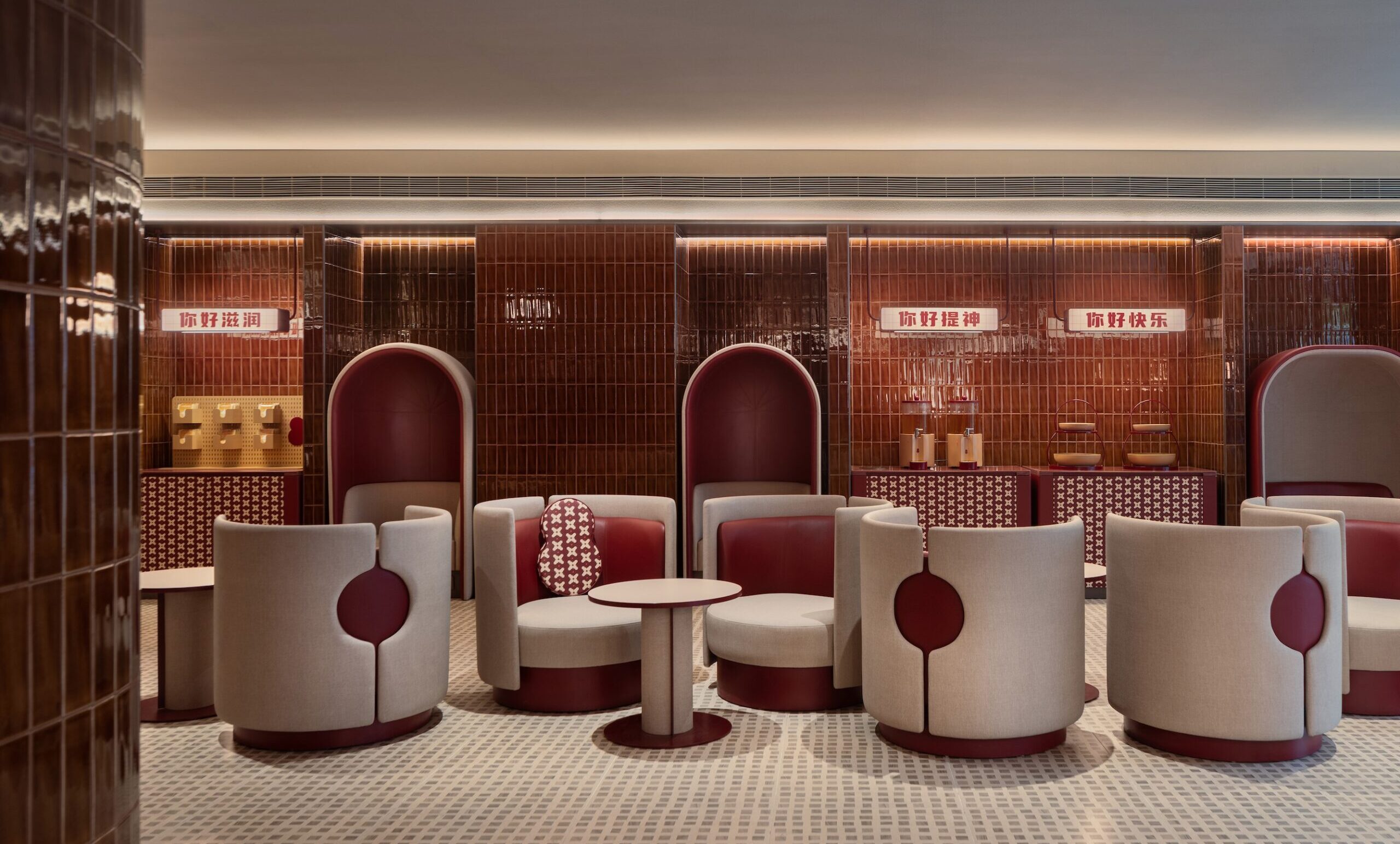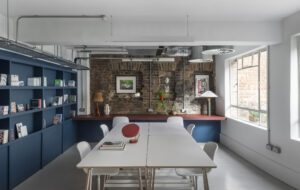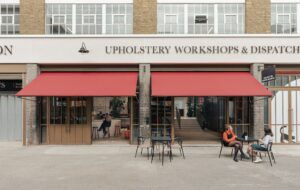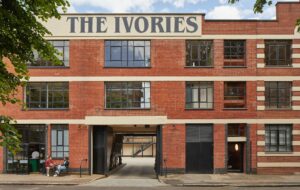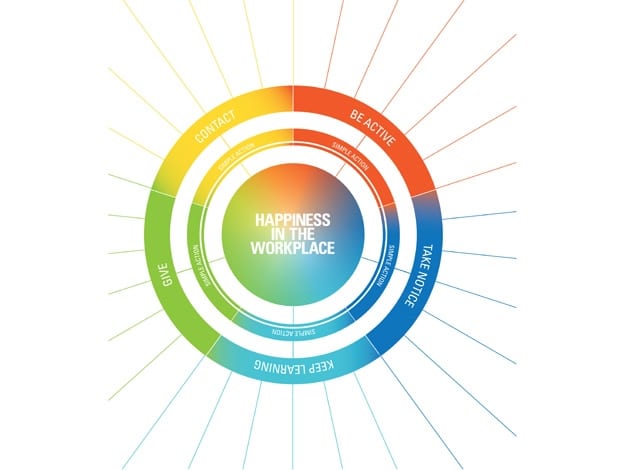 NEF’s “five ways to wellbeing” – equally relevant in and out of work|Nic Marks (left) and Tony Hseih (right) launch the happiness survey||
NEF’s “five ways to wellbeing” – equally relevant in and out of work|Nic Marks (left) and Tony Hseih (right) launch the happiness survey||
The New Economics Foundation’s Happy Planet Index taught us that income and wellbeing are not intrinsically linked – and now the thinktank is outing its efforts into making the workplace a little happier too
Nic Marks, master statistician, is on a mission to make the workplace happy. This undertaking falls into the wider remit of Marks’ work, heading up the Centre for Well-being at UK thinktank NEF (the New Economics Foundation). The centre, set in a converted outhouse in Vauxhall, is the largest centre implementing applied wellbeing in the world. Inside, researchers innovate to promote social change.
The driver for the centre, launched by Marks ten years ago, was the will to put the wellbeing of people and the planet at the heart of policy making. Its challenge was to develop the research methods and tools to make this shift.
“There was a weakness in the current system; of collapsing what life is about into the economy,” says Marks. “Measuring success by growth is a system that’s dependent on us consuming more and more a year; it’s a merry go round that’s hard to get off.”
His search for alternate indicators to GDP (or productivity) led Marks to create the Happy Planet Index, a global index of human wellbeing and environmental impact. Last year he delivered a TED talk, since viewed on TED’s website over half a million times, about how, on the scale of contentment versus consumption, Costa Rica comes out laughing, compared to its higher-income counterparts. “Our agenda asks the purpose of society,” says Marks. “It’s a fun question to engage with, especially when cracks in the dominant economic system are beginning to show, in Occupy and the recent riots for example. We’re not going to go backwards; you cannot imagine a world without business, and large systems in place. But we can see and grow totally new ways of working.
“The centre is not just about ideas,” he continues. “It’s about making ideas operational, giving them traction and implementing them.” Transferring hard statistical knowledge to an organisational context requires a mix of soft and hard skills. Marks has qualifications in management, research and system change and is a trained psychotherapist, but he started out in business and consultancy.
A few years ago he started to think about work. “People spend a large amount of their waking hours at work. What is interesting about a workplace is that it is a complete and bounded system; from a statistical perspective, you can measure the whole system. It is harder to reach people in work with public policy than children, older people or people who depend on the state. A good way to engage them is at work.”
Based on more than a decade of research, NEF has launched the The Happiness at Work Survey (www.happinessatworksurvey.com), an innovative tool designed to both inspire and facilitate change to work culture. Staff surveys don’t have a great reputation – research shows that although organisations recognise their importance, they are not getting value from them, and that even though 50% of workplaces carry them out, 80% of staff see no difference as a result. The Happiness at Work Survey assesses and scores the different facets of working life, and shows where you sit on an average happiness scale, based on the result of a national benchmarking survey. Participants can see their own results instantly, and view results for their team (or whole organisation) the moment
the survey closes, so there’s no sense of HR going off for months to collate information and everybody forgetting it ever happened. And although results are transparent, they are also confidential.
“The survey is to put up a mirror what’s going on in an organisation, and to open a window into a whole new possible space, and a different way of working together,” says Marks. “It’s to help bring about revolutionary changes, not just marginal ones.” Once the survey is done, NEF suggests running a results workshop for participants, then creating an action plan for where to go next. Early adopters include recruitment agency The Works, the Coal Authority and North Central London NHS.
The tool was launched in spring at ad agency Mother in Shoreditch, and also at Westminster in the company of the All-Party Parliamentary Group on Wellbeing Economics. In attendance was US entrepreneur Tony Hsieh, leader of the Delivering Happiness movement, co-developers of the survey. Hsieh developed an advertising network called LinkExchange, which sold to Microsoft for over $250m, with a two-year golden handcuff, but after three months he walked out and vowed never to work in an organisation he didn’t enjoy. Happiness is the business model behind his most recent venture, online shoe company Zappos, which sold to Amazon in 2009 for over $1bn. Hsieh remains CEO, operating on the motto “make people happy and great things will happen”. The two policies for his customer service staff are “be yourself” and “use your own judgement”, ie no reading from scripts or placing limits on how long a sales call can last (the longest, for the record, was eight and a half hours). “The strategy is to over-deliver on relationships,” Marks explains.
The arguments for happiness at work are synonymous for business and the economy. “When people are happier, they are more energetic, focused, better at building good relationships,” Marks explains. “People create better jobs for themselves.”
In terms of design, you can build wellbeing into space, but too often it’s done on a post hoc basis. “Creating points for reflection, points to be active, including beautiful spaces for walking and meetings are all ways of helping people lead happier lives at work,” Marks explains. “It comes back to the five simple actions that can improve wellbeing in everyday life: connect, be active, take notice, keep learning and give. Good design can free up space for social connectedness, while giving at work can be through links to local community projects, and allowing people to volunteer on company time, but it can be simpler than that – teams giving to other teams, for example.”
Using the workplace to shape wellbeing needs designers and directors to unite. Go on. Be happy.
NEF’s Nic Marks will be facilitating masterclasses for those who are interested in learning more about understanding wellbeing at work; the next one is on 4 and 5 September in London. Contact
[email protected] for details.

